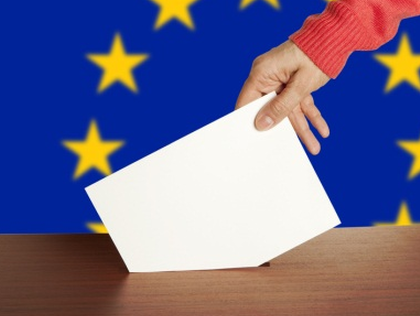
New figures sneaked out by the European Union show that May’s European Elections had the lowest turnout ever, according to EurActiv. The final turnout figure – which was buried on the European Parliament’s website – was 42.54 percent, below the 43.1 percent they had initially announced.
This is the lowest turnout since the first election in 1979, and includes a couple of countries that have compulsory voting. The new figures are particularly embarrassing because the initial figures made it sound like the downward trend was finally being reversed.
At the time of the initial announcement of the figures the parliament’s spokesman Jaume Duch Guillot said the EU had witnessed “a historical moment because for the first time since 1979, the long term trend of declining turnout has been reversed”. The election itself was run under the slogan “This time it’s different”, and European leaders had expected the financial crisis to boost turnout.
Arch-federalist and leader of the Liberals in the European Parliament Guy Verhofstadt, initially hailed the marginally-higher turnout estimate, saying the new Parliament “will be more representative than the previous one”.
But news the turnout actually fell is serving to prove that Europeans have little enthusiasm for state institutions. Turnout in the European Elections has fallen from 62 percent in 1979 to 43 percent in the 2009 election.
The result will also cast doubt on the “Spitzenkandidaten” strategy that saw each political party choose a lead candidate. This created a sort of Presidential election, although all the candidates were deemed so politically toxic in Britain that UK voters knew almost nothing of the plan.
When the first result was estimated, Simon Hix, a professor of politics at the London School of Economics said that it proved “the validity of the experiment to personalise the campaigns and focus them on European issues”.
European leaders had assumed the strategy would lead to an increased turnout, but they may have alienated people further because it meant that the unpopular Jean-Claude Juncker was made President of the European Commission.
The reason for the change in the turnout figures is updated statistics from Spain and Italy. A European Parliament spokesman said: “When you look at the final result and the figure that was estimated at the end of May – those two figures are very close. The final figure, which is a little bit lower than in 2009, confirms that the big descending tendency of previous years has been stopped.”
The turnout did rise in Greece, but elsewhere disillusionment appears to be the order of the day. The figures are also well below the US presidential turnout in 2012 of 57.5 percent and 65.1 percent for the 2010 UK general election.

COMMENTS
Please let us know if you're having issues with commenting.